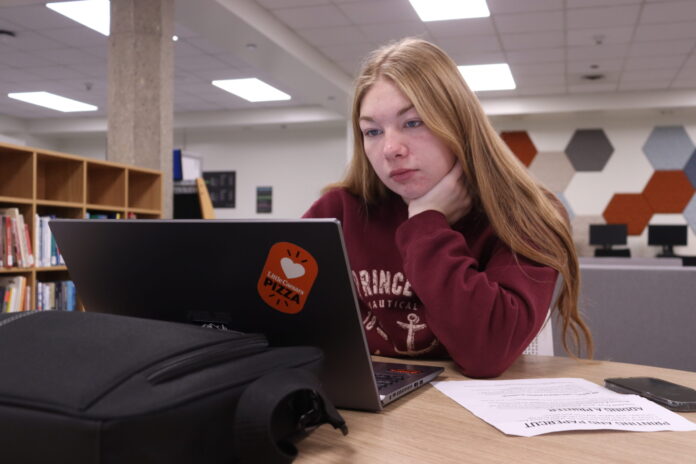Studying well in advance of an exam, memorization, time management and self-care are important tips to remember, as high school and post-secondary students begin working on final papers and writing final exams in the coming weeks.
Lethbridge College Learning Cafe academic strategist Jayne Werry says to study effectively, is to take your time. “Create flash cards or write yourself some sample questions on topics you think might be on the exam.”
Werry recommends reviewing the material every day in the weeks leading up to the exam. “Once you feel confident, try teaching it to someone who isn’t in your class to test your understanding.”
“This time of year, whether you’re a college or university student coming to the end of the semester or a high school student – that’s when work starts to pile up. You have final papers due and exams to study for. Your primary thing is going to be time management,” she says. “Sort out what is most important and what deserves most of your time.”
In order to move a memory into long-term storage, one needs to practice, notes Werry. “Our short-term memory holds very little for a very short period of time.”
“When you study, you rehearse the information you want to remember. The principle of spaced repetition says every time you remember something, your ability to remember it is strengthened and it will take longer for you to forget it.”
Werry suggests reviewing study material every day until you’re sure you know it, then review every other day until your exam.
Even though life is busy, Werry says to plan your time to fit in all the things you need to do. “This might mean making a daily schedule and blocking off time for things like school, work, sports and studying.”
She also recommends choosing a study time that suits you.
According to Werry, the Pomodoro method suggests taking 25 minutes to work on a task, then take a five-minute break. “You can repeat this cycle four times in a two-hour block, then take a longer break.”
Werry says breaks should be spent doing something completely different than studying. “Don’t take a break to scroll your phone.”
“Go for a walk around the block or play your favourite song. Don’t forget to plan time for fun. Your social battery is important too,” she adds.
Also, be prepared when exam writing. “It also means eating well, getting enough sleep and arriving to the exam on time.”
Self-care, physical fitness, emotional wellness, mental wellness and general wellbeing is imperative.
“If you’re studying right now, that’s a good time to start. The earlier is always better. If you try to cram the night before, it’s not going to work,” adds Werry.






